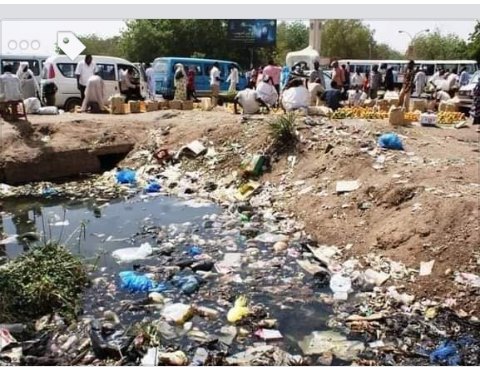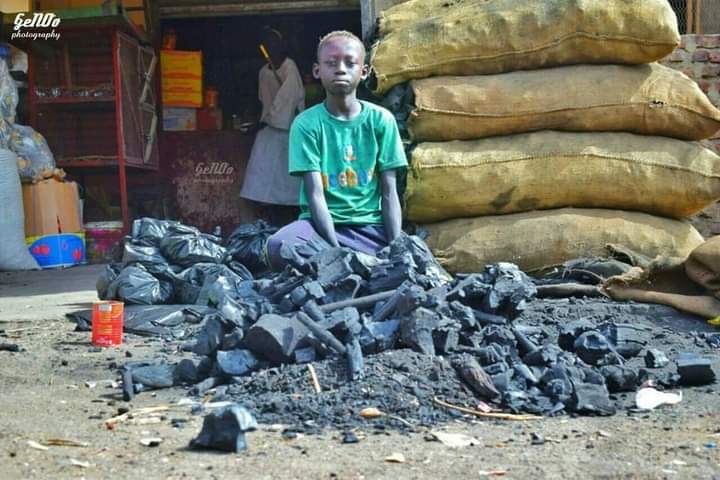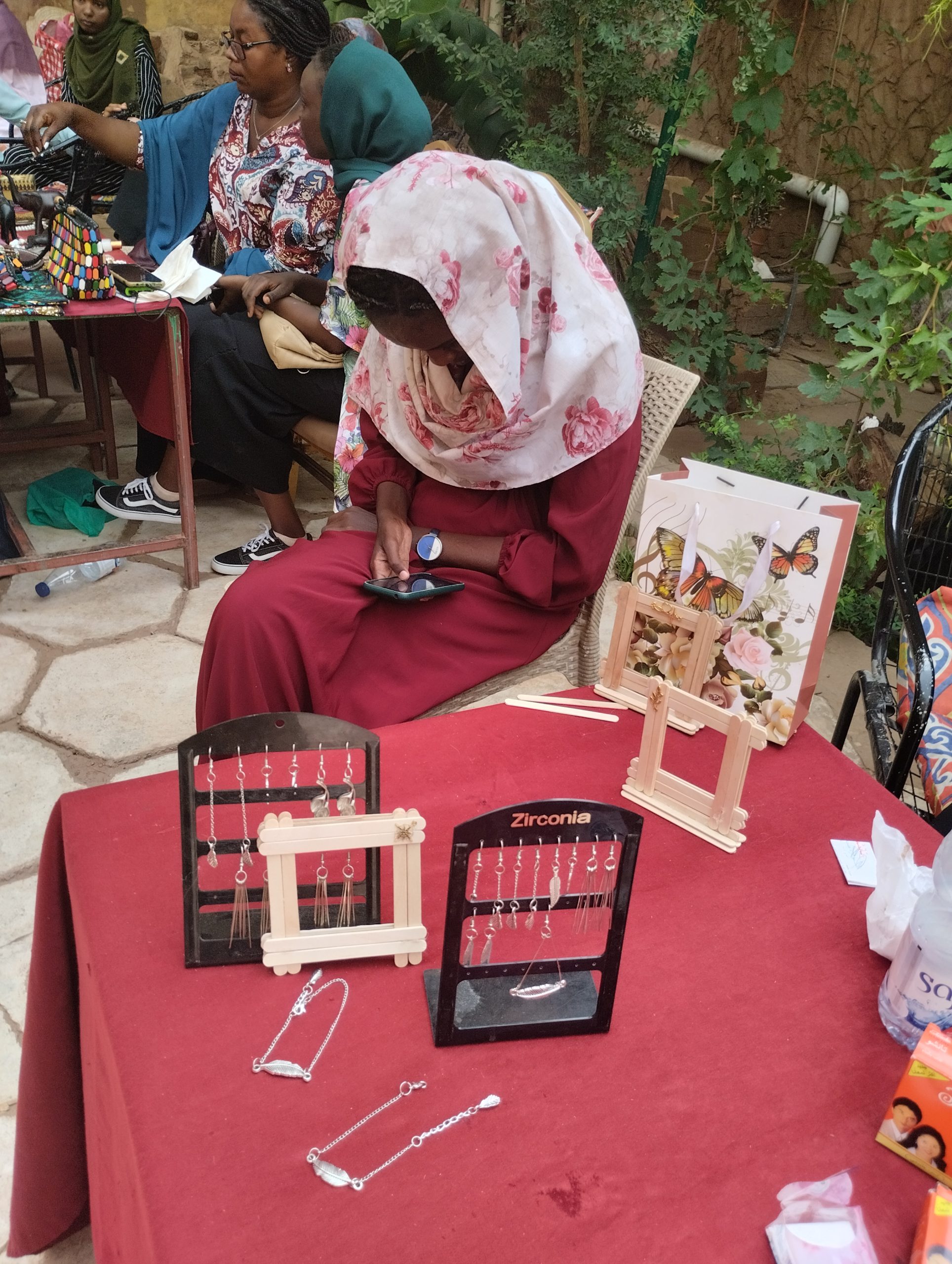Groundbreaking Workshop on AI and Technology-Facilitated Gender-Based Violence at AWiM24
Trending
Saturday May 31, 2025
Trending

Khartoum
Khartoum is choking on waste to an extent that as a journalist, I found it hard to concentrate on one environmental issue and leave the others. If we are not talking about pollution and waste crisis, then it is illegal logging or erratic power and water supplies. All of these have adversely affected women given their traditional household roles.
Khartoum the capital city of Sudan is filled with filth and fumes from cars which is endangering the lives of residents who are also grappling with economic and political crises.
Along the streets, paper bags litter are an eye sore, poor drainage system and unpleasant sights plaque on every corner of Khartoum. This is because there is no proper waste management system in place.
To make matters worse, dumping grounds are close to residential homes to an extent that at times waste leaks into water sources used in these homes.
Mariam Hassan laments that the city authorities do not provide enough dust bins for waste disposal.
“At times, they don’t even pick up the waste even when the bins are full leading to bad odour and a swarm of flies in residential areas.”
The Africa Green Stimulus Programme element on improving air quality as well as waste management emphasizes managing wastes in a circular economy pathway to significantly improve how goods and services are produced and consumed, reduce waste, create jobs, empower women, mobilise the youth and contribute a reduction of pollution and incidents of public health. But in Sudan, the complete opposite is the situation.
There has been debate on switching to environmentally friendly bags made of cloth, paper or fronds from plastic bags which are not biodegradable and litter the city.
And if you thought it is just the issue of pollution alone, then you would be treated for more environmental surprises in Khartoum.
Now and then, there is a fire outbreak in the marketplace. These outbreaks pollute the air while arbitrary cutting down of trees further destroys the environment.
Deforestation
Cutting of trees has also been blamed for the adverse climatic conditions, but there is no stopping because many families still rely on charcoal for fuel.

Apart from charcoal, timber is also used to make sculptures. This is because some Sudanese women depend on the wood to make sculptures and gifts for sale locally and in the neighbouring countries.
Sarah Mahmoud, a woman who makes handicrafts from burlap, leather, and natural materials say: “The political crisis affected my participation in bazaars and exhibitions, as the business demand decreased and the number of visitors decreased significantly, hitting hard my finances.”
The dependence on trees by various industries is considered a threat to environmental security, as the lack of green spaces affects temperature and agriculture.
To protect the environment, the Sudanese Society for the Protection of the Environment and the Environmentalists Association in partnership with the government have rolled out awareness campaigns on proper waste disposal. The group also seeks to end strikes of waste workers due to non-payment of salaries by the government.

Agriculture
Although Sudan has vast land the proportion under cultivation is very small due to government levies that have forced citizens to shy away from agriculture which could have supported many households to be food reliant.
The problem of water, especially after the crisis of the Renaissance Dam between Ethiopia, Egypt, and Sudan, has led to fears of depletion of the waters of the White and Blue Nile.
Climate changes
Harsh climatic conditions pose a threat to food security, while fumes from factories cause air pollution even as the government delays fully implementing environmental protection policies.
Ecosystem restoration
According to the 2030 Sustainable Development Goals, a strategy from the United Nations Environment Programme (UNEP) and the United Nations Decade for Ecosystem Restoration is based on “creating a platform that allows the world’s societies to put their relationship with nature on a new path to follow over the coming centuries.
The envisaged features of this path include respect for nature by the whole community implementing ecosystem restoration on a scale of hundreds of millions of hectares and creating millions.
Expected solutions
To ensure effective solutions, Sudan must draft policies anchored in the constitution to protect the environment and revive the economy.
Organizations, youth groups and emerging companies have been effective in bringing about change in society.
The dreams and aspirations of the Sudanese are to achieve democratic transformation and find solutions to the challenges facing the country including the environment.
The people suffer from electricity and water cuts in addition to the shortage of clean water that affects public health and women during menstruation.
Goal number 13 of the Sustainable Development Goals (SDGs) calls for nations to take urgent action to combat climate change and its impacts by 2030.
The upcoming COP 27 which will be held in neighbouring Egypt should be a wake-up call just as UNEP boss Inger Andersen emphasised during the World Environment Day 2022 on the need for everyone to stand up for “the only one earth that we have.”
“Action is more important than ever, and we are running against the clock, and this is on all of us,” she said.
The time is ripe for Sudan to clean its house in terms of the environmental mess that put the lives of many women at risk.
This article is part of African Women in Media (AWiM)/UNEP Africa Environment Journalism Programme
We’re not gonna spam. We’ll try at least.

Copyright 2020. African Women In Media
Copyright 2020. African Women In Media
Recent Comments